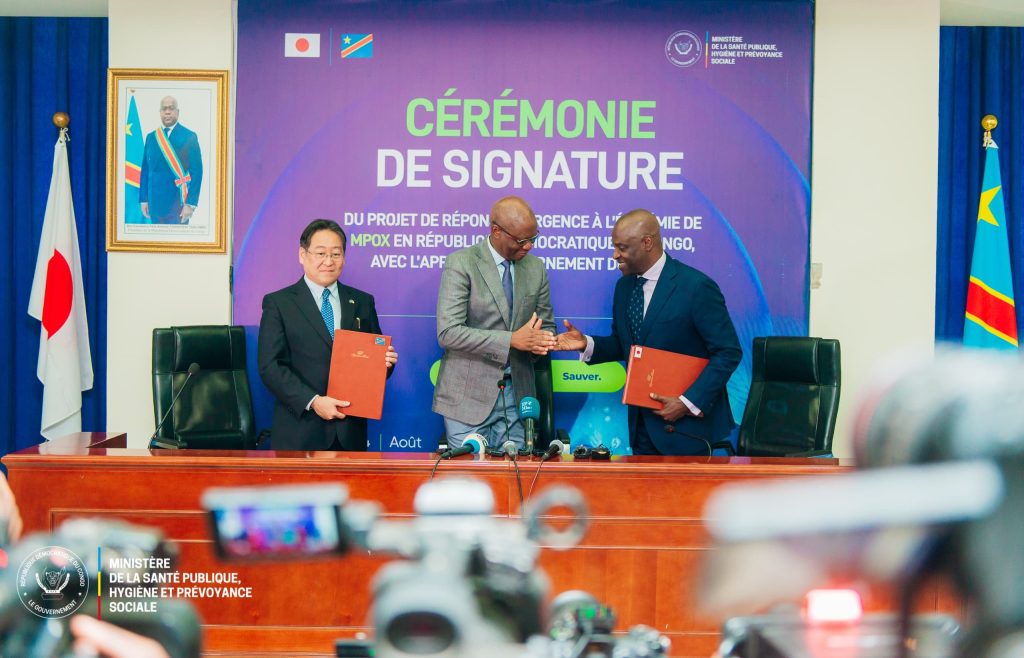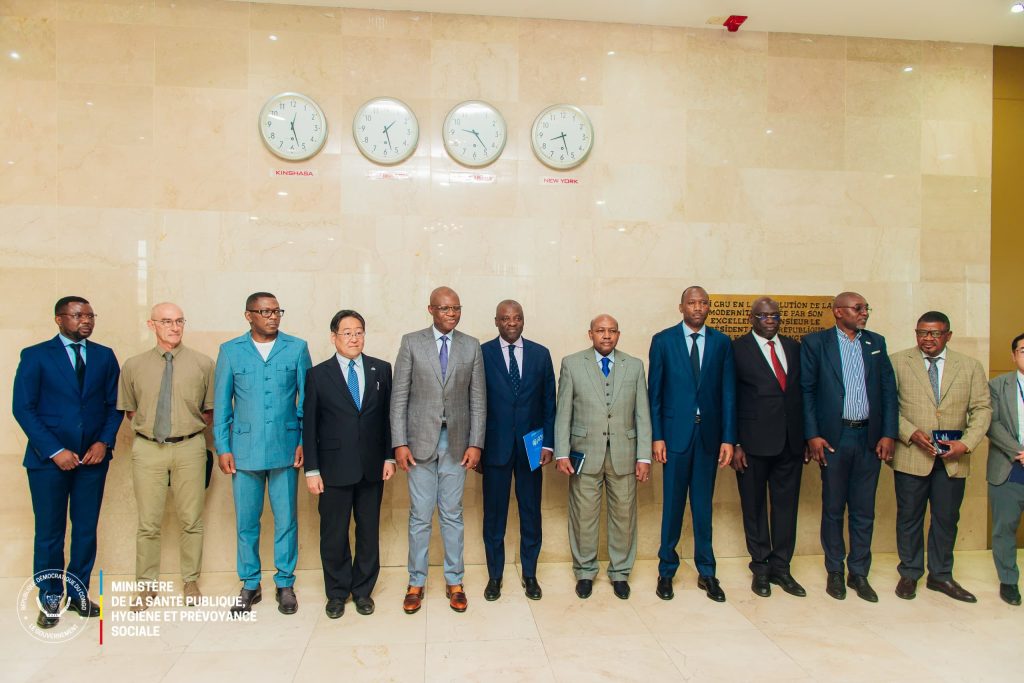Japan and DRC Ministry of Health sign landmark agreement to combat Mpox as AFENET reaffirms continued support
-
by
AFENET


In a significant step toward strengthening epidemic preparedness and response, the Government of Japan and the Democratic Republic of Congo’s Ministry of Public Health, Hygiene, and Social Welfare have signed a strategic partnership agreement to support emergency response efforts against the ongoing Mpox outbreak.
The signing ceremony, held in Kinshasa, underscores a renewed international commitment to reinforcing the DRC’s health system against emerging infectious disease threats. The partnership will enhance Mpox surveillance, case management, laboratory capacity, and community engagement to curb the spread of the virus.
AFENET, represented at the event by Dr. Mwamba Dieudonné Kazadi, Director of the DRC Field Epidemiology Training Program (FETP), and Dr. André Misombo, National Coordinator of the AFENET Corps of Disease Detectives (ACoDD), commended the Government of Japan for its timely and strategic support.
“AFENET stands alongside the Ministry and our Japanese partners to ensure this response reaches the most affected communities,” said Dr. Misombo.
To strengthen national efforts, AFENET has deployed 70 trained ACoDDs across seven provinces: Bas-Uele, Équateur, Kasaï, Kinshasa, Sankuru, Sud-Ubangi, and Tshopo. These disease detectives are playing a crucial role in field surveillance, alert investigation, contact tracing, sample collection, and community sensitization.
ACoDD Impact Snapshot – Week 30
- 1,009 alerts reported; 963 (95.4%) investigated
- 517 suspected Mpox cases identified
- 461 laboratory samples collected; 102 confirmed positive
- 8,248 contacts monitored; 117 developed symptoms
- 46,532 people reached through community sensitization, including 277 health workers
“This project is a game-changer,” Dr. Misombo added. “By combining local public health expertise with international cooperation, we can contain this outbreak and protect our communities.”
He further noted that ACoDD teams are actively supporting case listing, enhancing laboratory efficiency, and conducting widespread community engagement all of which are aligned with the goals of this new partnership. The support from Japan will help scale these efforts across the country.
AFENET remains committed to working closely with the Ministry of Health, donors, and partners to strengthen field epidemiology, emergency response, and epidemic intelligence across the DRC.



